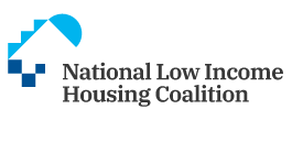 On August 15, 2022, the National Low Income Housing Coalition (NLIHC) hosted a webinar that explains the Housing First model, as well as the rigid, post-pandemic laws that are being proposed or passed across the country to address homelessness by criminalizing it. In spite of legislation that aimed to humanely get people off the streets during quarantine to prevent the spread of COVID-19, homelessness has been increasing over the past two years and there has been backlash against proposals to keep in place the 2020 solutions to prevent homelessness and house the homeless. Diane Yentel, NLIHC’s president and CEO, stated that in the U.S., before COVID, 10 million people suffered from 50% housing cost burden with 600,000 homeless people. She said that “during the pandemic, Congress housed the homeless and prevented people from losing their homes; however, resources are depleting, protections are expiring, and people are suffering from inflation with every $100 increase in rent increasing homelessness by 9%.” With a lack of protections and regulations, monthly rents have increased to $200 on average in 2022, increasing homelessness by 18%. To address the impact of increases in homelessness, many states are considering and passing legislation that is fairly harmful to homeless people. Eric Tars, the legal director at the National Homeless Law Center, presented about the specific methods in the U.S. that aim to outlaw homelessness. Tars started his presentation by telling “Amber’s story,” which is an anecdote about a homeless woman in St. Petersburg, Florida, who was caught peeing behind a bush, arrested and charged for public urination and indecent exposure. In St. Petersburg, people can be arrested for sleeping outside at night and there are no public toilets available after 11 p.m. Amber has tried to not drink anything after 6 p.m. to prevent the need for a toilet overnight, which not only didn’t work, but resulted in a urinary tract infection. With Amber’s indecent exposure charge, Tars addressed how “she didn’t only have to face jail time, as well as fines and fees that she can’t afford, but now has to register as a sex offender for the rest of her life,” which would impact her access to jobs and where she’d be able to live. When connecting Amber’s story to the greater issue regarding the criminalization of homelessness across the country, Tars cites a 2019 survey that shows how almost all of the 187 U.S. cities that have been surveyed have some form of law that criminalizes homelessness and claims that this phenomenon is on the rise. However, making homelessness illegal is thought to be more expensive than simply housing people. Tars pointed out how continuing to rely on law enforcement to address homelessness harms the whole community. It drains the resources available to to solve underlying housing issues that cause homelessness, costing 2 to 3 times as much as it would take to house people. It also shifs law enforcement’s focus to homelessness instead of public safety since “more than half of people in some jails are there because of homeless-related offenses.” Plus, Black adults are 9.7 times more likely than white adults to receive citations for low-level, non-traffic related offenses, with Latinx adults being 5.8 times more likely than white people. Tars contends that the criminalization of homelessness is also a racial justice issue. According to Tars, almost every state in the U.S. has historic laws that criminalize homelessness, with some dating back to the Victorian and Jim Crow eras. However, template legislation has recently been pushed by the Cicero Institute to reduce homelessness by promoting harmful laws that include:
In August, the Biden administration passed the Reconciliation Bill to reduce inflation after the pandemic, but as NLIHC’s Yentel pointed out “the bill does not address the housing crisis in any meaningful way.” The key principles of Housing First were identified by Dr. Va Lecia Adams Kellum (president and CEO of the St. Joseph’s Center) in the webinar and proposed as a counter to the laws that aim to criminalize homelessness and make up for what the Reconciliation Bill is lacking: 1) Immediate Access to Housing, 2) Consumer Choice and Self Determination, 3) Recovery Orientation, 4) Individualized and Person-Driven Supports, and 5) Social and Community Integration. The presenters at this webinar have proposed some more specific solutions to address the current rise in homelessness and how homelessness is becoming criminalized. In the context of template legislation, Tars claims that it is easier to stop bad laws from passing before they are approved than to fight a bad law through the courts after it has been implemented. Executive director of the National Coalition for the Homeless, Donald Whitehead Jr., stated how people should understand that homelessness is solvable and nobody chooses to be homeless. After stating how when people are made to be Othered, they inevitably become targets for violence, he connects this to how criminalizing homelessness forces people into isolation and makes them more susceptible to violence and hate crimes. To address this, Whitehead suggests that as communities draft solutions to homelessness, people experiencing homelessness should be involved in those decisions because “people who are closest to the problem are closest to the solution.” The primary solution that Dr. Kellum proposed is advocacy. She suggests that advocates should work with local continuums of care, direct messages to local officials, have those who are directly impacted by homelessness share their voices, and encourage supportive services to make plans to proceed in addressing the needs of people in housing. To learn more about Housing First and NLIHC, or view the full webinar, click here.
1 Comment
9/20/2022 10:50:52 pm
The criminalization of homelessness, like the weaponization of disease by methodical denial of health care, is but (more) unequivocal proof of our Masters' ultimate purpose -- ecogenocidal reduction of the 99 Percent and lifelong enslavement of the survivors.
Reply
Leave a Reply. |
|
© COPYRIGHT 2018. ALL RIGHTS RESERVED.
|




